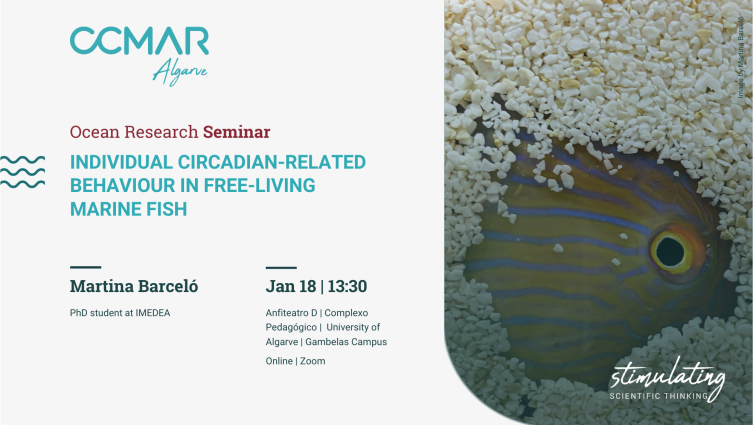Individual circadian-related behaviour in free-living marine fish
Despite the relevance of fish behavioural types and plasticity in many eco-evolutionary processes, the circadian-like behaviours (awakening time, foraging daily duration or rest onset) in wild marine fish has been majorly overlooked.
The development of new high-resolution telemetry systems applied to marine environments, the partition of behavioural variability into intrinsic among-individual variation and behavioural plasticity on daily rest-wake cycle allows us to deepen our understanding of the causes and consequences of individual circadian behavioural variation. Here, we have used a novel high-resolution telemetry system to simultaneously track the daily activity of 87 individuals (37 Females and 50 males) of the pearly razorfish (Xyrichtys novacula) in two different biological contexts (pre-and reproduction period).
We have computed daily circadian-related variables (Awakening Time, Rest Onset, Relative Activity Duration, Relative Rest Duration and Relative Rest Midpoint) by analysing the individual detections and Hidden Markov Models. Then, using General Linear Mixed Models (GLMMs), we have portioned the behavioural variability into intrinsic within-individual and between-individual variation to quantify fish's circadian typologies and individual variation in behavioural plasticity (i.e. different responsiveness of individuals to environmental gradients).
We have found that wild fish populations are composed of a wide variety of circadian behavioural types. Fish's circadian typologies emerged independently of body size, age, daily average light exposures, sea temperature, sea waves, and current. Sex and environmental variables affected the expression of circadian behavioural variables (plasticity), but some individuals responded stronger than others suggesting the existence of circadian-related Behavioural Reaction Norms (BRN). In conclusion, our work proposes a new methodology to provide novel knowledge about the internal clock of marine fishes and how fluctuations of the environmental or biological contexts can shape their expression, with the final goal of understanding the eco-evolutionary consequence of fish clonks in marine systems.
The seminar will be held on January 18, at 13:30, at the Anfiteatro D l Complexo Pedagógico.
Participation is free but mandatory to register.
About our speaker:
Martina Barceló is a PhD student at the fish ecology lab of IMEDEA. Her thesis focuses on the ecological consequences of wild fish's circadian-related variation.
This seminar was kindly sponsored by



